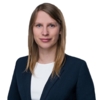Frankfurt/Main – The impending economic downturn is good news for private equity investors in the German SME sector, with purchase prices for German private companies looking increasingly enticing. In fact, purchase prices are rated as being more attractive than at any time in the last five and a half years. That is one of the key findings of the latest private equity panel survey, which is conducted twice a year by CMS Germany and FINANCE magazine. More than 50 different private equity (PE) firms in the German SME sector provide assessments of the market for the survey. The high company valuations that previously weighed on the German private equity market have thus become much less of an issue.
Compared with the previous year’s results, purchase price attractiveness comes in at 4.00 points, a marked rise over the 2.70 points recorded then – a figure which was the lowest in the panel’s ten-year history. Having said that, on a ten-point scale the new reading does not necessarily imply good value. 44% of private equity firms currently see themselves more as sellers than buyers. The market is still regarded as expensive, even though it is slowly recovering. Dr Tobias Schneider, a partner at CMS Germany, commented: “Many private equity managers are now expecting the economy to slow down, bringing not only a drop in prices but also a shake-up of the PE market.”
Funds under high pressure to invest continue to face challenges
By contrast, there has been barely any improvement in the situation of funds that are under high pressure to invest. Economic headwinds within their portfolios are reducing the scope for new investments. Although PE managers still rate the business prospects of their portfolio companies surprisingly highly at 6.16 points, that figure is well below last autumn’s survey result of 6.97 points. The financing conditions offered by banks and debt funds, meanwhile, have passed their peak. The score for the attractiveness of financing terms fell to 6.96 points, representing a further decline on the 7.43 points recorded in spring and the 7.70 points of the previous year. Dr Jacob Siebert, a partner at CMS, said: “It’s still too early to start talking about a trend reversal in this respect, although banks do seem to be taking a more conservative line. At the same time, there is more competition, including from insurance companies.”
The availability of buy-out finance remains virtually unchanged at 7.96 points compared to 8.09 points in the last survey. The gap between access to funds and finance terms is wider than at any time in the past three years, though. While there is still no shortage of credit, banks and debt funds are seeking to reduce their risk by tweaking the terms. “There is a greater awareness of risk, but good assets are still in demand and easy to sell,” said CMS partner Dr Jacob Siebert.
Dividing line between venture capital and private equity remains
The software/IT sector remains the favoured target of German private equity managers. This marks a continuation of the underlying trend towards investment in forward-looking software, IT and technology companies. The latest survey indicates that this sector is the most sought-after of the 15 core industries included in each survey. While the respondents rated services at 7.36 points and gave healthcare an attractiveness score of 8.04 points, software/IT is the clear winner with 8.48 points. Observers believe that an increasing focus on technology could blur the distinction between the investment styles pursued by private equity and venture capital. Private equity managers do not share this assessment, however. Slightly over three quarters (76%) of the panellists still see a sharp dividing line between the two styles. In deal sourcing and fundraising, 92% of the respondents likewise do not see themselves as competing with venture capital funds. CMS partner Dr Tobias Schneider notes: “We are seeing a trend whereby even quite large PE firms which really have nothing to do with VC are increasingly interested in younger companies from the software and IT sector, despite such companies not really having mature business models yet.” According to Schneider, this is leading to greater competition, but also to unprecedented flexibility on the part of PE firms.
Press Contact
presse@cms-hs.com







%20(2).jpg?v=3)




Social Media cookies collect information about you sharing information from our website via social media tools, or analytics to understand your browsing between social media tools or our Social Media campaigns and our own websites. We do this to optimise the mix of channels to provide you with our content. Details concerning the tools in use are in our privacy policy.